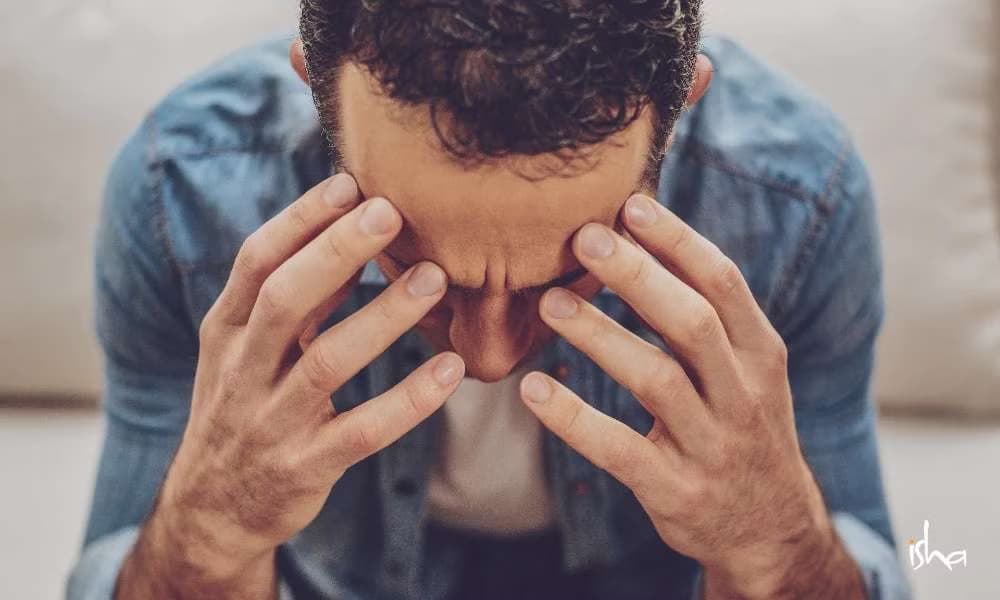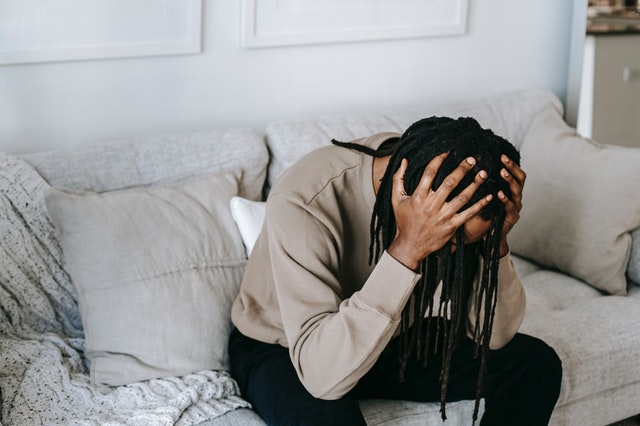Anxiety and insomnia are a powerful combination and can have a disruptive and negative impact on your life.
Perhaps you “woke up” this morning, but the truth is that you really never fell asleep last night. Instead, you laid awake in bed with your mind racing.
Maybe it’s been hard for you to concentrate and focus at work lately as a result. Now you’re irritable and get into arguments quickly with your partner. The stress and anxiety are too much.
It’s important then to understand the connection between anxiety and insomnia…and what to do about it.
What is Insomnia? 
Insomnia is a condition that prevents a full night of restorative sleep. You are awake for some or all of the nighttime hours. Or, you find yourself waking up in the middle of the night and not being able to fall back asleep. This isn’t an occasional event. Rather, it happens consistently enough that you feel tired and exhausted during the day. You have low energy, trouble concentrating, and struggle to get through your work productively. But how are anxiety and insomnia connected?
The Racing Mind
One reason why you might not be able to fall asleep is that you experience racing thoughts. Many people have a moment of inspiration or ideas that just pop into their heads. However, anxiety sufferers often have trouble keeping their thoughts under control. They are constantly bombarded with thoughts, ideas, or images in their minds. Therefore, when it’s time to fall asleep, their brains just can’t “switch off.”
You, too, may find that your thoughts just keep going or cycling through the night. Do yourself find yourself staying up all night long, with a persistently full mind? This can be very stressful and cause you to feel even more anxious.
The Fear of Falling Asleep
Another reason why you might have such a difficult time sleeping is that you are afraid to fall asleep. When you do fall asleep, are you prone to terrible nightmares? These nightmares could be linked to events that happened in your past, which you revisit when you nod off.
Such dreams are so terrifying that you might do anything to avoid having to go to dark places in your mind or memory. So, your brain does it’s best to protect you and keeps you from resting deeply. You might even know, on some level, that you need to sleep. Yet, your brain won’t let you because it’s trying to protect you from those images and the physiological discomfort.
The Intricate Relationship Between Anxiety and Insomnia
The fact of the matter is that the relationship between anxiety and insomnia is complicated. One can certainly be the cause of the other. But the reality of the situation remains that you still feel anxious, stressed-out, and miserable.
To make matters worse, over time, your physical health will be affected by your lack of rejuvenation. Your body needs sleep to heal itself and prepare you for the next day. We also know that sleep is vital for brain function and health.
So, what can you do about anxiety and insomnia?
Making Positive Choices for Better Sleep
Just as anxiety and insomnia influence each other, you can do things that will help improve both issues. For example:
- Practice breathing and meditating to reduce stress.
- Exercise to help you burn energy and feel more tired.
- Reserve your bedroom for sleep rather than TV-watching or surfing videos on your phone.
- Drink a warm cup of non-caffeinated tea to relax.
- Read a book before turning in.
- Practice aromatherapy.
- Avoid drinking or smoking before bedtime.
- Refrain from using other stimulants in the evening.
The connection between anxiety and insomnia can be very strong. Yet, a few simple adjustments and routine steps at home can begin to break that cycle. Still, you may discover that professional help is needed too. If you are struggling with anxiety and insomnia, please read more about anxiety therapy and contact me today for a consultation.





